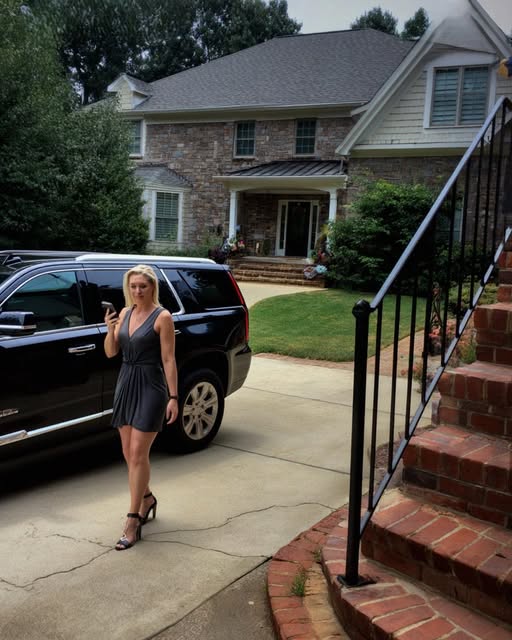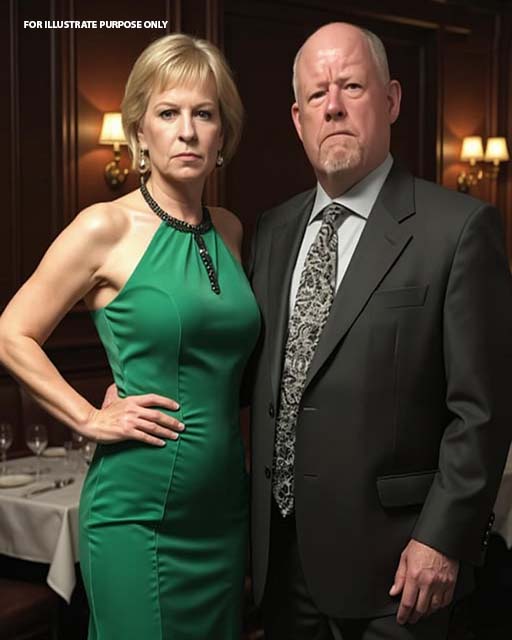I agreed to help because that’s what you do for family. I’m a 35-year-old dad from Michigan, married to Sarah, hustling to grow a tiny contracting business into something I could one day hand to my boys. The numbers were tight—credit cards juggling materials, payroll due before clients paid, dinners skipped so my crew never missed a check. When my sister-in-law, Tanya, called after a spring hailstorm shredded half the neighborhood, I showed up with a ladder and the best intentions.
She was pacing the yard, phone clutched like a lifeline. The roof was cracked, water pooling where it shouldn’t, siding flapping like tired flags. She grabbed my arm and asked if I could fix it—said the insurance money would land any day and she’d pay the minute it cleared.
“Please. I promise. The second the check comes in.”
I said yes. Over three blistering weeks, my crew and I practically lived on that roof. I ordered premium shingles so the next storm wouldn’t gut her again, replaced the garage door, repaired and painted the siding, reframed the windows, and installed custom gutters that cost more than I ever planned to confess to Sarah. Tanya called me her hero to anyone who passed. She brought cookies for my kids once, which felt sweet enough to quiet the small voice telling me to get a deposit and write a contract.
When we finished—June 6—I sent the invoice. $18,800. Every cent already out of my pocket.
“Just waiting on the check,”
she texted.
June drifted into July, July into August. New excuses replaced old ones: the paperwork was delayed, the adjuster was out, the address was wrong. Meanwhile, my business gasped for air. My oldest needed sneakers; we put it off. Sarah tried to stay calm until finally she asked why I hadn’t gotten anything in writing. I didn’t have a good answer—just the word “family” rattling around like change in an empty jar.
Then Tanya pulled into our driveway in a brand-new SUV, glinting chrome and moonroof and that new-money smell. My son ate canned ravioli on the porch and watched me walk down the steps.
“Did your insurance come through?”
“Yeah,”
she said, sipping an iced coffee.
“So where’s my payment?”
She laughed. Not a nervous laugh—a dismissive one.
“I figured since you’re family and just starting out, this could be a portfolio piece. Exposure, you know? Plus, I babysat for you while you were fixing the door—that counts for something, right?”
Sarah’s face went white. The “babysitting” had been two hours, and only because I’d rushed to fix her lock at night so she wouldn’t sleep with the door unsecured. Tanya waved like we were the rude ones, tossed a comment about jealousy, and rolled off in her ad-ready ride.
That night I stared at the ceiling, replaying every nail we drove into her roof, every receipt I’d floated on plastic. I did the math three times and still came up short. My guys needed paying. My kid needed shoes. I’d always been the second-chance type. But this wasn’t a misunderstanding; it was entitlement dressed up as charm.
Tanya loved hosting. Her social feeds were curated perfection: charcuterie boards, candlelit patios, “boozy book club brunches.” She’d printed embossed invitations for a housewarming—celebrating the very work I’d financed. We were invited.
I called two of my crew and asked them to swing by the day before the party for a “warranty check.” The goal wasn’t confrontation; it was clarity. People were already there dropping off supplies and helping with last-minute decor when my guys cheerfully asked, just loud enough,
“Would you like to upgrade any of the free services your brother-in-law generously donated out of kindness?”
They told me Tanya turned the color of a stop sign.
That night I made a one-page brochure—before-and-after photos of her place, my company name and number, and one line in bold at the bottom:
“Total unpaid balance: $18,800.”
Under that, smaller:
“Support local builders—especially the ones who show up for family.”
I printed thirty. The next evening, I slipped the stack beside the gift table and stepped back. Guests picked them up. Whispers moved like wind through tall grass. Faces tightened. The shine dimmed.
Tanya called the next morning, her voice a siren.
“You made me look like a scammer!”
“Did you pay me?”
Silence. Then a text to Sarah claiming she thought the work was a gift and we were bullying her. Sarah replied with a sentence:
“Enjoy your SUV.”
Less than a week later, the SUV vanished. Tanya had parked in front of our house again, she said to drop off an apology card. Our door camera recorded a stranger hotwiring and rolling away. The part that gutted her? No comprehensive coverage. She’d skipped it to save money. No payout, no car. She came to us for the footage—pleading, then panicked. I handed the video to the police and wished her luck. That was the last we heard for a while.
Karma isn’t always theatrical; sometimes it’s plain arithmetic. You withdraw where you never deposit, and one day the account is empty.
Guests from her party stopped following her online. A couple of neighbors who’d seen the brochure called me for quotes.
“If you work that hard for someone who didn’t pay,”
one said,
“we know you’ll stand by your work with us.”
I paid my crew. My son laced bright-blue sneakers with light-up soles and stomped around the living room like he owned the world. I stood in the hallway and cried where he couldn’t see me.
What did I learn? To use contracts, yes. To ask for deposits, absolutely. But also this: kindness is only sustainable with boundaries. Help should never require you to go hungry while someone else posts about their “blessings” from the driver’s seat of a luxury car. Family doesn’t mean free labor; it means fairness.
Tanya hasn’t apologized. Maybe she never will. What changed is us. Sarah and I now say yes with paperwork and no without guilt. My business is steadier; word-of-mouth from that awkward evening did more than any ad could. People respect a builder who shows his work—and his worth.
I still help when I can. I still believe in second chances. But I believe, even more, in teaching our kids—mine and, apparently, my extended family—that integrity is paid in full, on time, and without excuses. Sometimes the only way to keep being generous is to prove you’re not a doormat.
And sometimes the justice you’re waiting for isn’t loud. It’s a pair of light-up sneakers on a Tuesday night and the quiet relief of a balance sheet that finally adds up.




